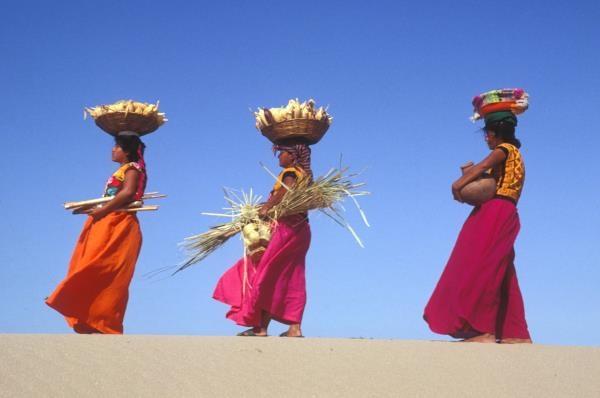
4 March 2016, Mexico City - Hunger eradication, climate change adaptation, and strengthening family farming are the three priorities set for FAO by governments of Latin America and the Caribbean during the agency's regional conference, which closed on Thursday.
They also agreed on common measures aimed at helping the 34 million people in the region who are chronically hungry.
"Latin America and the Caribbean has committed to ending hunger and malnutrition in less than ten years and FAO will work closely with countries to achieve this," said Jose Graziano da Silva, Director-General of FAO.
Over the next two years, FAO will implement an initiative focused on supporting the region's top food security strategies, such as the Hunger Free Latin America and the Caribbean and CELAC's Food Security, Nutrition and Hunger Eradication Plan.
"Countries have been very clear: the regional priority is to eradicate hunger by 2025, and FAO will devote all its efforts to make this dream a reality," said Graziano da Silva.
A comprehensive response to climate change
FAO will also develop a top-priority regional initiative to promote the sustainable use of natural resources, climate change adaptation, and disaster risk management
This initiative will led special attention to Central America's "Dry Corridor,", where millions of people have seen their food security affected by poor weather.
"In the past, drought in the Dry Corridor was a cyclical phenomenon associated with El Niño. Today, climate change has caused those droughts to be more erratic, prolonged and unpredictable," noted Graziano da Silva.
Small Island Developing States, many of which are in the Caribbean, also require urgent support, since for them climate change presents the greatest urgency.
In the area of fisheries, the FAO Director-General called on countries to ratify the International Agreement on Port State Measures, which seeks to combat illegal fishing. Three more countries must ratify it for it to come into effect.
"This treaty can be a powerful tool to promote sustainable development, and is an urgent necessity for Small Island States," he said.
Stop the rise in obesity
During the Conference, FAO signed two agreements, one with the Pan-American Health Organization (PAHO) and another with Consumers International, aimed at combating the rise the region's numbers of obese and overweight people.
According to PAHO, 56 percent of adults in Latin America and 44 percent in the Caribbean are overweight.
To address this situation, FAO and WHO will strengthen regional policies to eradicate malnutrition and implement the recommendations of the International Conference on Nutrition (ICN2) and the new Agenda for Sustainable Development.
FAO's pact with Consumers International, will seeks, in the words of Graziano da Silva, "to turn the act of consuming and buying into an act of conscious citizenship, which takes into account health and nutrition as well as environmental issues".
Unlocking rural potential
Poverty still affects 47 percent of the inhabitants of rural areas in Latin America and the Caribbean, a rate twice that of urban areas.
FAO will implement an initiative focused on promoting family agriculture, inclusive food systems and sustainable rural development.
This initiative will facilitate family farmers' access to assets, financial and non-financial services and help them strengthen their producer organizations.
In addition, it will foster the integration of social protection policies and productive programs, encouraging public procurement from family farms, local/regional production circuits and improvement of public food supply infrastructure.
To avoid impoverishment cycles due to crises, this initiative will work to improve the resilience of rural households to shocks and emergencies.
Mexico and Peru join forces with FAO to end hunger
During the Conference FAO also signed two agreements with the governments of Mexico and Peru, to strengthen their roles as strategic partners in the fight against hunger.
Among the various aspects that the agreements address, emphasis was placed on joint work on issues of South-South cooperation.
Graziano Da Silva noted that both Mexico and Peru have assumed a new profile, since they have ceased to be merely beneficiaries of international cooperation and become aid donors as a result of their successful development experiences.
"Mexico and Peru are now strategic partners of FAO in promoting sustainable food systems and the eradication of hunger and poverty," said Graziano da Silva.
This news release was originally distributed via FAO's Regional Office for Latin America and the Caribbean on Thursday 3 March 2016.